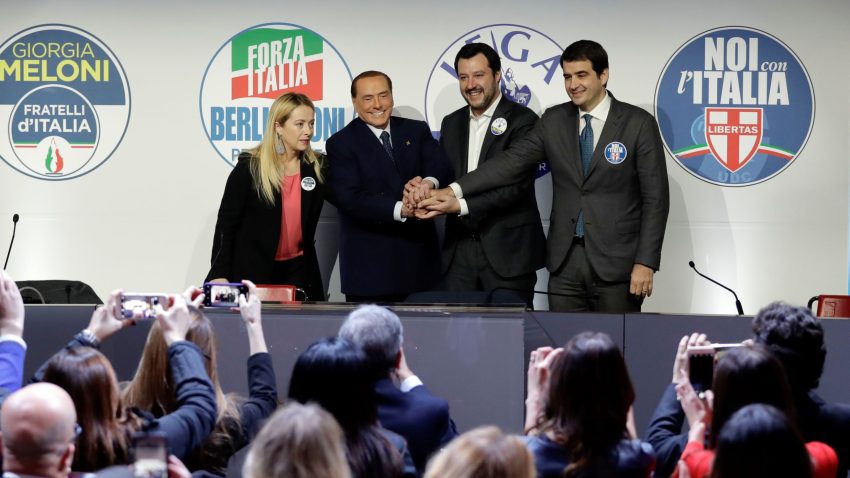When Mario Draghi resigned as Italy’s prime minister on July 21, he precipitated the country’s third government collapse since 2018, throwing Rome into political turmoil yet again. Rival political parties have already launched their electoral campaigns in earnest ahead of snap elections now scheduled for Sept. 25. The big question now is what comes next for Italy, especially if the elections result in a far-right party taking the helm of a coalition government.
For nearly a year and a half, Draghi—the former head of the European Central Bank—held together a government of national unity composed of otherwise incompatible parties, spanning from Matteo Salvini’s nationalist League and Silvio Berlusconi’s right-wing Forward Italy, to the center-left Democratic Party and the left-wing populist Five Star Movement, or M5S. Only the far-right Brothers of Italy, led by Giorgia Meloni, abstained from joining the coalition, although it nevertheless supported the government on some key motions, such as sanctioning Russia and sending military aid to Ukraine.
With such a diverse group of political ideologies it has not been easy for Draghi to advance the few reforms that he started, such as the justice reform—which was opposed by M5S—as well as a land registry reform that remains incomplete and has been opposed by the center-right. Yet, the common goal of managing funds from the European Recovery Facility—the European Union’s mechanism for disbursing pandemic recovery funding, which required a spending plan approved by Brussels—together with the challenges of effectively implementing the coronavirus vaccine rollout have helped Italy’s disparate political forces to power through together for a year and half.

